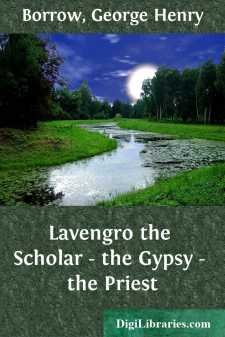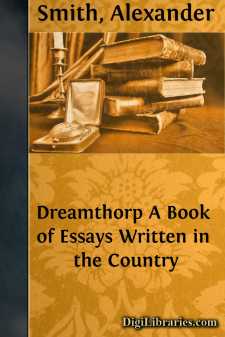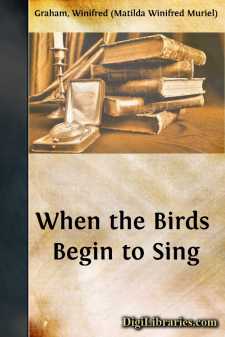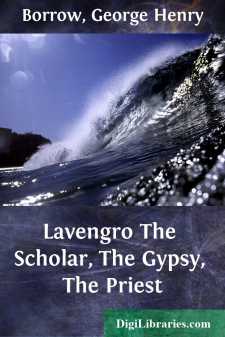Literary Collections
- American 84
- Ancient, Classical & Medieval 14
- Asian 1
- Australian & Oceanian 1
- Canadian 55
- Continental European 121
- English, Irish, Scottish, Welsh 179
- Essays 160
- General 24
- Letters 46
- Middle Eastern 1
Literary Collections Books
Sort by:
NOTES UPON GEORGE BORROW. I. Borrow as a Splendid Literary Amateur. There are some writers who cannot be adequately criticised—who cannot, indeed, be adequately written about at all—save by those to whom they are personally known. I allude to those writers of genius who, having only partially mastered the art of importing their own individual characteristics into literary forms, end their...
more...
by:
Alexander Smith
DREAMTHORP It matters not to relate how or when I became a denizen of Dreamthorp; it will be sufficient to say that I am not a born native, but that I came to reside in it a good while ago now. The several towns and villages in which, in my time, I have pitched a tent did not please, for one obscure reason or another; this one was too large, t'other too small; but when, on a summer evening about...
more...
One of the most amusing questions concerning the short story is why a form which is singly so attractive that every one likes to read a short story when he finds it alone is collectively so repellent as it is said to be. Before now I have imagined the case to be somewhat the same as that of a number of pleasant people who are most acceptable as separate householders, but who lose caste and cease to be...
more...
by:
Holme Lee
CHAPTER I. The years have come and gone at Beechhurst as elsewhere, but the results of time and change seem to have almost passed it by. Every way out of the scattered forest-town is still through beautiful forest-roads—roads that cleave grand avenues, traverse black barren heaths, ford shallow rivers, and climb over ferny knolls whence the sea is visible. The church is unrestored, the parsonage is...
more...
CHAPTER I. She was certainly very pretty, and just then she looked prettier than usual, for the sharp run had brought a more vivid colour to the cheek, and an added sparkle to the eye. She was laughing, too—the rogue—as well she might, for had she not brought her right hand swiftly down upon his left ear when he had chased her, caught her, and deliberately and maliciously kissed her, and did he not...
more...
by:
Nat Gould
CHAPTER I "WILL HE MARRY HER?" "Do you think he will marry her?" asked Harry Morby. "Does anybody know what he will do," replied Vincent Newport, discussing their host Alan Chesney, of Trent Park, a beautiful estate in Nottinghamshire, close to the Dukeries, Sherwood Forest, and the picturesque village of Ollerton. In the billiard room they had just finished a game of a hundred...
more...
DEDICATION. MY DEAR WILLIAM ARCHER, Severe and ruthlessly honest man that you are, you will find that the levities and the gravities of this book do not accord, and will say so. I plead only that they were written at intervals, and in part for recreation, during years in which their author has striven to maintain a cheerful mind while a popular philosophy which he believed to be cheap took possession...
more...
by:
Arthur E. Becher
The Prairie Mother Sunday the Fifteenth I opened my eyes and saw a pea-green world all around me. Then I heard the doctor say: “Give ’er another whiff or two.” His voice sounded far-away, as though he were speaking through the Simplon Tunnel, and not merely through his teeth, within twelve inches of my nose. I took my whiff or two. I gulped at that chloroform like a thirsty Bedouin at a...
more...
CHAPTER I. THE FOREIGNER AT HOME “This is no my ain house;I ken by the biggin’ o’t.” Two recent books one by Mr. Grant White on England, one on France by the diabolically clever Mr. Hillebrand, may well have set people thinking on the divisions of races and nations. Such thoughts should arise with particular congruity and force to inhabitants of that United Kingdom, peopled from so many...
more...
In the following pages I have endeavoured to describe a dream, partly of study, partly of adventure, in which will be found copious notices of books, and many descriptions of life and manners, some in a very unusual form. The scenes of action lie in the British Islands;—pray be not displeased, gentle reader, if perchance thou hast imagined that I was about to conduct thee to distant lands, and didst...
more...











